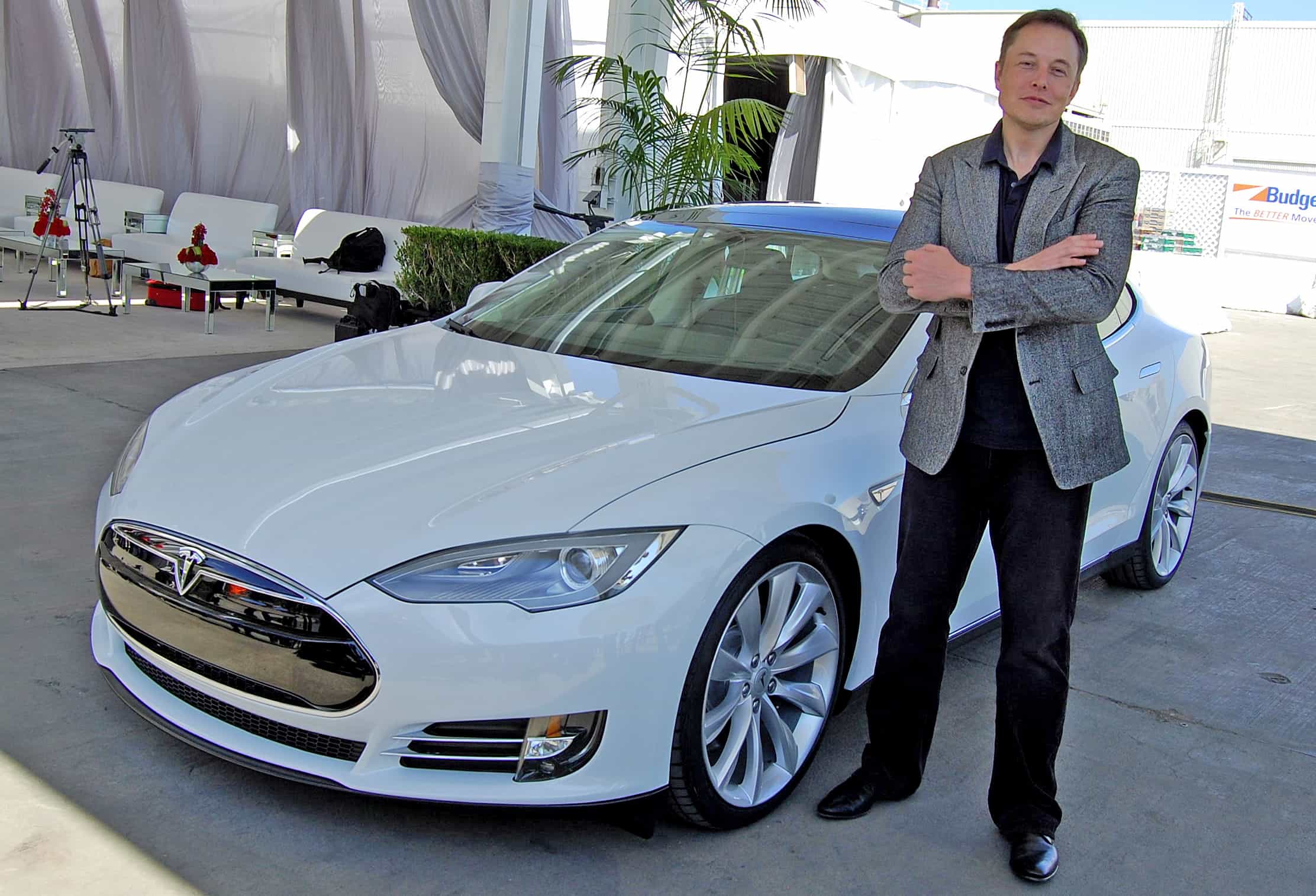South African Entrepreneurs
Above: Famous South African born, Elon Musk at the Tesla factory.
Understanding South African Entrepreneurs and Entrepreneurship Development

Picture PhotoRack.
It has often been said that economic development in any country is directly related to the level of entrepreneurial activity that takes place within the country. It has also been said that both enterprise development and entrepreneurship are amongst the best ways to create wealth and add value to society as a whole.
In South Africa, with all its historical imbalances, enterprise development in particular is seen as a key to enabling black South Africans (in particular) to take a rightful place in business.
You may well have read this kind of thing before, but how much do you know about enterprise development, South African entrepreneurs and entrepreneurship development in this country?
South African entrepreneurs and entrepreneurship development are key to our national economy
South African entrepreneurs and entrepreneurship development defined
If you open a dictionary and look for the definition of an entrepreneur, you will see that this is a business person who is prepared to take initiatives and calculated risks in order to make a profit. If you are going to be an entrepreneur, you will have to take risks. And to be successful, you need to make money out of your endeavours.
Taking risks does not imply stupidity, or suggest that entrepreneurs are gamblers. But it does mean they are able to rise to challenges that will increase profitability.
The most significant factor about entrepreneurs – including of course South African entrepreneurs – is that they need to be able to identify a feasible opportunity and then ascertain whether the opportunity they have identified is in fact a viable idea. If the idea isn’t feasible, anyone who is likely to become a successful South African entrepreneur will drop the idea. But if the idea IS feasible, that very same person will have the capacity to take the idea further to see if it is in fact viable. If it is, they will usually do a business plan and then launch a new business.
Basically, entrepreneurs are able to take their own creative ideas and combine these with the skills, resources and people who are needed to be able to form a successful business.
In essence, they need to be able to:
- Identify new or different opportunities that may be products or services.
- Be creative and innovative.
- Start a business that he or she can call their own.
- Manage that business with or without the help of other people.
- Finance, produce and market products and services successfully.
- Find the finances if not immediately available.
- Organise and control all the resources needed to run a successful business (this includes finding and managing the capital required for the business, as well as the people and materials needed for it to operate).
- Take risks. Remember that these will be calculated risks and not just stupid risks!
A lot can be said about entrepreneurship development, but really what is important is that the concept involves literally developing entrepreneurship and making entrepreneurial enterprises happen. For this reason, enterprise development helps South African entrepreneurs of all colours and creeds achieve their desires.
Extending the concept of South African entrepreneurs and entrepreneurship development
There are many different types of entrepreneurial businesses, and also many different types of entrepreneurs.
For instance, entrepreneurial businesses may be micro – which means they are really small, one-person businesses – or they can be small, medium or large. Generally it is the SMME (which stands for small, medium and micro enterprises) sector that carries the South African entrepreneur. This is partly because the more entrepreneurial businesses there are, the more jobs there will be for people who aren’t entrepreneurs.
In fact it is believed that 97,5% of all businesses in South Africa are SMMEs – although not all of these are entrepreneurial businesses, and not all grow and become successful.
A business entrepreneur, regardless of what he or she might do for a living, may be described as a person who undertakes a wealth-creating and value-adding process by developing ideas, getting resources together and making things happen. The success of a business entrepreneur is measured by performance and return (or profit).
Then there are social entrepreneurs, who are people who recognise social problems and use entrepreneurial principles to organise, create and manage ventures in an endeavour to bring about social change. The success of social entrepreneurs is measured by the impact their work has on society.
A relatively new sector, social entrepreneurship has a vital role to play in emerging markets. Because social entrepreneurs are passionate about what they do, they are able to make change happen and so help in the transformation process.
Then there are corporate entrepreneurs, or intrapreneurs, who create a new, profitable business within a business that already exists.
One of the best known examples of successful intrapreneurship involving South African entrepreneurs and entrepreneurship development, is the formation of Outsurance and Discovery Health from within the highly successful existing business structure of First National Bank (FNB). What made Outsurance entrepreneurial was that it offered direct, short-term insurance to people without the traditional intermediary insurance brokers being involved. Over the years it has grown from a small corporate entrepreneurial business to a large, highly successful insurance business.
So which route could you take? Think about it… and good luck!







